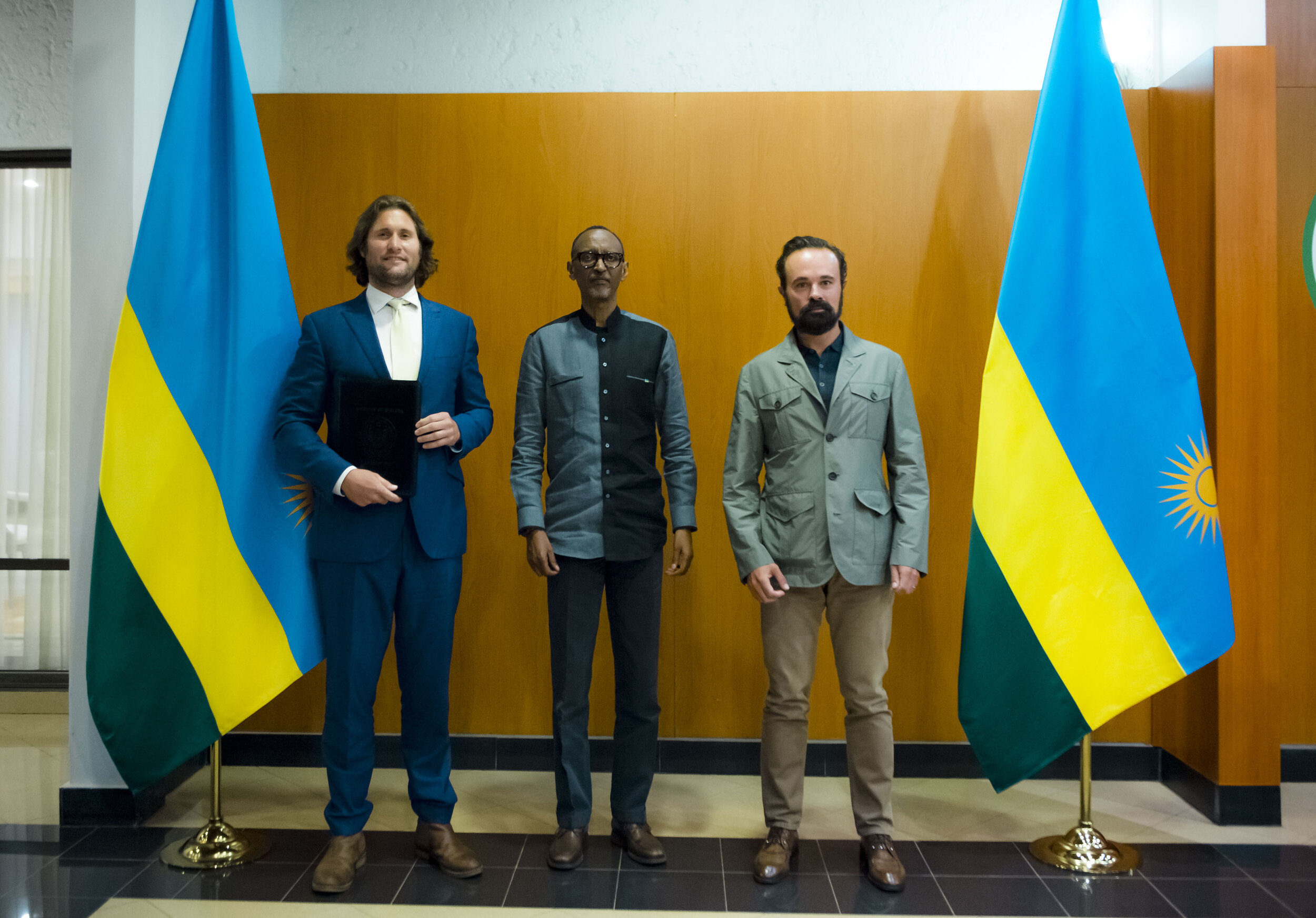A “meeting of minds” to multiply conservation impact
President Paul Kagame speaks to Space for Giants and Lord Lebedev about why he joined its Giants Club initiative, how the horrors of the 1990s laid the foundation for his environmentalism today, and his hopes for the future.
Image by Plaisir Muzogeye
President Paul Kagame of Rwanda became the sixth African Head of State to join Space for Giants’ Giants Club initiative last week. The Giants Club connects leaders of African states with significant large mammal populations to financiers, conservationists, scientists, and well-known supporters. Together, these individuals combine their political muscle, extensive financial resources, pioneering scientific expertise, and global reach and influence to fulfil the Club’s goal to protect Africa’s remaining populations of large animals and their habitats. President Kagame joins President Mokgweetsi Masisi of Botswana, President Ali Bongo Ondimba of Gabon, President Uhuru Kenyatta of Kenya, and President Yoweri Museveni of Uganda, who are all joint leaders of the Giants Club. Botswana’s Former President Ian Khama acts as President Emeritus.
Why are you joining the Giants Club?
When you look at conservation and the environment, you can see that in Rwanda we’ve already been trying to do a lot about it. We’ve not done everything: we’re not capable of doing everything as well as we would wish to. But we are doing something. So when the Giants Club spoke to me to tell me what it was all about, it was easier for me to join. Because what they are asking us to do is what we’ve already been doing. When there is a meeting of minds, partnership is easier.
What are your hopes for the cooperation?
The kind of partnership exemplified by the Giants Club increases our resources and therefore our ability to do more than we have been doing. By working together, our output is multiplied. We see more ability to (achieve) results, to protect our environment and wildlife, and also manage even better the conflict between human activity and interests and the environment.
Why is conservation important to you personally?
Let me simply put it this way. Where we are now, those trees [around the Presidential Palace], those are not trees we planted. They were here and we built carefully around them. In the end I don’t believe that if I cut those trees, I’m better off. I’d rather have my house here with those trees existing. I’m better off that way. It is important to me personally and for the country.
It comes from a part of my history, which put me right in the middle of nature, not by design [President Kagame lived for many years as an exile in a refugee camp in southern Uganda near its border with Rwanda]. That led to a growing understanding of how nature contributes to our wellbeing, whether it is the water that we drink daily, how it needs to be preserved or it will dry out, to the importance of plants for our survival.
During the time of our tragic history in the 1990s, with the displacement of populations because of war, our country was almost turned into a desert. People cut trees for firewood, for makeshift homes. The whole country was almost razed to the ground. We saw the immediate effect of that, we came face to face with the consequences, which affected the daily lives of ordinary people.
The negative impact was visible to everyone and one thing became clear: we needed to protect our environment. Because if you are not protecting your environment, you are not protecting yourself. This is a lesson that can be learned and understood by anyone.
How can a country develop while also protecting its environment?
Every country, every society, every individual will seek to pursue economic benefits to some extent, because economic benefits translate into wellbeing. What we have learned in the process of economic development is that there is no conflict between conserving the environment and economic well being. In fact, as this topic has gained ground everywhere in the world, science has discovered a number of ways that are driving new economic thinking, which have proven that by preserving your environment, you can actually realise economic benefits equal to or better than what you are used to doing. Instead of running down resources until they are depleted, destroying so much to get so little, we have to keep the environment intact.

